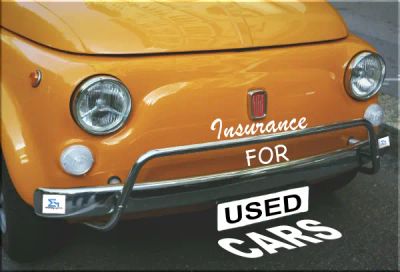NCD or No Claim Discount is a discount percentage given on your insurance premium for the next year if you have not made any claims on the policy for the current year. This is the insurer’s way to give you a discount for being a safe driver. Your no claim discount increases every year up to a certain maximum percentage (depending on the vehicle ) if you do not claim consecutively for years.
With every claim, the discount may either drop or remains flat. Certain Insurers in Singapore (namely DirectAsia Singapore) has introduced another layer of discount above the max discount if you are consistent on No Claims for 5 years or more.
What is my NCD or No claim discount?
Your NCD depends on the vehicle category you drive as well as the consecutive years of no claims towards your insurer.
For Private Car Policies:
| You do not claim for | Your renewal discount is |
|---|---|
| 1 year | 10% |
| 2 years | 20% |
| 3 years | 30% |
| 4 years | 40% |
| 5 years or more | 50% |
| 6 years (Only with some insurers like Directasia.com ) | 60% |
For Commercial Vehicles or Motorcycle Policies:
| You do not claim for | Your renewal discount is |
|---|---|
| 1 year | 10% |
| 2 year | 15% |
| 3 years or more | 20% |
| Below – Only for Motorcycle and Only at some insurers like Directasia.com) | |
| 4 years of NCD 20 on Bike | 25% |
| 5 years of NCD 20 on Bike | 30% |
Does higher NCD means lower premium ?
Higher the NCD, higher is the discount on overall renewal insurance premium. However there are various factors that an insurer chooses to underwrite on that affects your premium. Hence different insurers may end up with different total premiums based on your profile.
Will my NCD or no claim discount reduce on claims?
It depends. NCD will not be impacted with your claims if you were found totally not at fault. Your NCD does reduce on claims if you were at fault. The reduction is as below.
For private cars:
| Your current NCD | NCD after one claim | NCD after more than 1 claim in the same year |
|---|---|---|
| 50% | 20% | 0% |
| 40% | 10% | 0% |
| 30% | 0% | 0% |
For commercial vehicles or motorcycles
| Your current NCD | NCD after one claim | NCD after more than 1 claim in the same year |
|---|---|---|
| 20% | 0% | 0% |
| 15% | 0% | 0% |
| 10% | 0% | 0% |
Also- some insurers sell NCDP- No Claim Discount Protection cover if you had a good record of no claims. If you had opted for this benefit and stay with the same insurer- they will help you protect on your reduction.
Can my NCD be transferred ?
In theory- the NCD or No claim discount is tied to the driver and not the car or motorcycle. Hence say if you drive for 5 years and gain 50% NCD and switch to a different car; you retain your NCD. However there is a small caveat to this being- if you own two or more vehicles, the NCD for each vehicle is different. To summarise- your NCD starts from zero- if you own a second car. Your NCD is transferred to your new car- if you “switch your car”.
How to check my NCD in Singapore?
When it comes to renewing insurance, one may wonder, “How to check no of claims I have or where to check my NCD ?”. However, currently your NCD cannot be checked with open to public free tools. You can enquire vehicle insurance details here as a paid service. This enquiry only allows you to search the status of the vehicle’s insurance coverage at a specific date / time.
The good news is – all motor insurers in Singapore have access to your NCD data. In order to check your NCD, call your insurers and ask them to query the database for you.
Also please note- some insurers have NCD protectors or NCD for life (e.g., FWD Insurance Singapore). You may want to make sure- they are querying your actual NCD and not confusing you with final NCD you may get provided you stay with them or have some protection on the NCD.
What is NCDP or NCD Protector ?
NCDP or NCD Protector is an extra optional benefit or premium you pay to protect your NCD. You can protect your NCD if its 50%. However certain insurers allow you to protect your NCD if its 30% and more. Read our detailed guide on what is NCD protector and should you buy NCDP?
With NCDP, your NCD stays the same despite of claims. Please check the policy documents for clauses on these protections. The NCD is protected as as you stay with the current insurer. FWD Singapore has NCD for life cover- where your NCD 50 is protected for good with them where as Directasia’s NCDP (NCD Protector Plus) helps you advance to next level of NCD even if you make a claim.
Do I need to report accidents to my insurer and does it reduce my NCD ?
According to the Motor Claims Framework , one needs to report the accident to the insurer within 24 hours or by the next working day if it’s non-business day. Even if the parties agree to a private settlement, a report to the respective insurers is still required for record purposes. If you do not report the accident or private settlement, the insurer still has the rights to reduce your NCD on renewal.
Will I loose my NCD if I take a break from driving or owning a car ?
Insurers in Singapore allow you to keep your NCD for about 24 months or two years should you end up breaking your driving records or ownership of car. Some insurers have a limit for 12 months or 1 year.
Can I transfer my NCD from overseas/ foreign insurer?
If you can prove your NCD with a letter from your last insurer overseas which states that you have been insured with them for x number of years and your claim free record- you may be entitled to an NCD benefit in Singapore.
Whose NCD is reduced if a claim is made while driving my friend’s or parent’s car ?
Provided, the car on whose insurance the claim is being made- is authorised to be driven by the named driver/ friends/ children etc- NCD of the main driver listed on the policy of the car is usually impacted. You as a driver will also have a record of claim history on other cars. It is good to check with the insurer based on car owner’s insurance policy wordings.
Now that you understand the concept of NCD or No claim discount followed in Singapore, find other ways to save on your insurance premiums.



